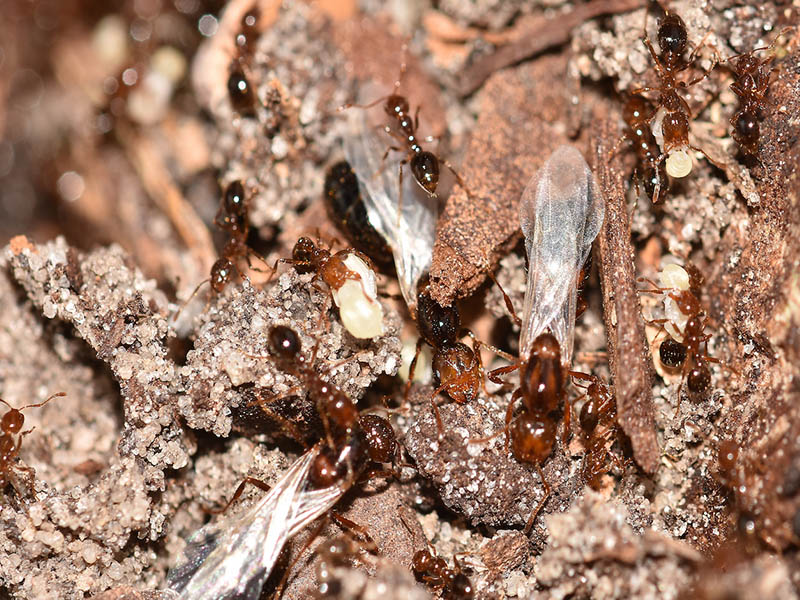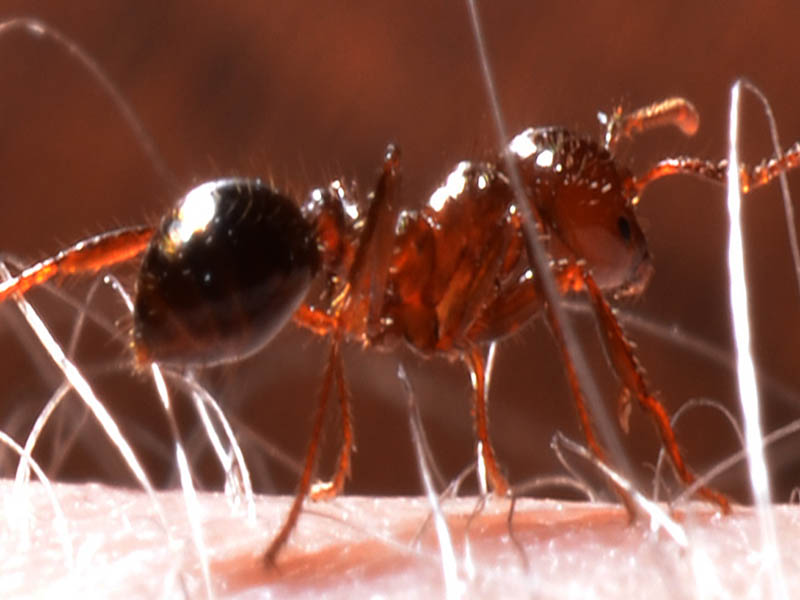Red imported fire ants

Where do fire ants live?
Red imported fire ants (RIFAs, for short) are an invasive species found throughout the southern and western United States. They thrive in warmer climates, living as far south as Florida, but are seen as far north as Virginia and Maryland. Fire ants are frequently introduced into new environments with transplanted trees, shrubs and potted plants.
Colonies like to nest in lawns and landscaping or soil near sidewalks and structural foundations. You’ll typically find their nests beneath a covering object, such as a rock or concrete slab. These large, loose mound nests may look like domes or appear more flattened and irregular in shape, spanning 2-4 square feet in size. Because RIFAs commonly dwell near the perimeter of a house, they sometimes venture inside the home through HVAC systems, electrical boxes and other easy entry points.
What are the health risks of fire ants?
RIFAs will sting people who disturb their nests. Each nest contains up to 250,000 ants, which means a disturbance is likely to provoke multiple stings at once. When one ant is in distress, others will come to its aid. Ants on the defense are difficult to brush off because they attach their mandible to the skin when stinging, which allows each ant to sting a person repeatedly.
Fire ant stings are painful, but they don’t normally require medical attention. A sting first causes a burning sensation, followed by a raised red welt. The red welt will later blister and may develop itchy white pustules. To treat the sting at home, carefully clean the area with soap and water and use a topical corticosteroid to relieve itching. Avoid popping blisters, which can lead to infection.
Those who are allergic to insect stings will react more severely to RIFA stings and may require medical attention. An allergic reaction may include hives, itching, swelling, nausea, vomiting, diarrhea or difficulty breathing. In rare cases, red ant stings can cause severe anaphylactic shock.



How do I get rid of fire ants?
If you come across a RIFA nest on your property, don’t attempt to handle it on your own – contact a licensed pest control professional immediately. Prompt treatment reduces the risk of somebody getting stung, as well as prevents a larger infestation. To keep fire ants out of the house, take care to seal all internal and external cracks and crevices where they might be able to enter.
Although controlling RIFAs can be tricky, a pest control professional will have the knowledge and tools to safely address the situation.